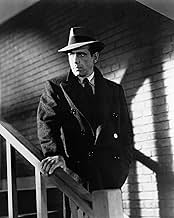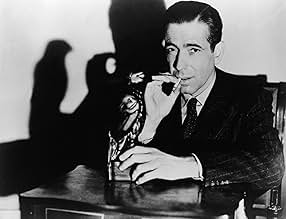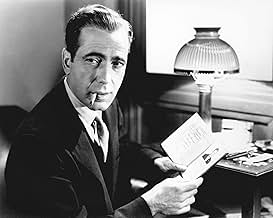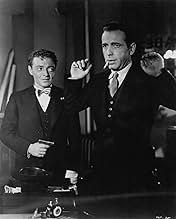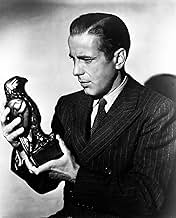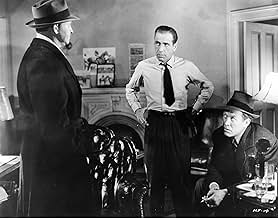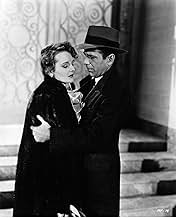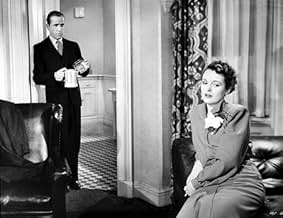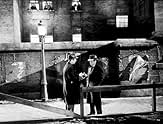"The Maltese Falcon" would be nothing without the muscular, cynical, and very entertaining lead performance from Humphrey Bogart. Well, 'nothing' maybe a bit of an overstatement- the film is inventive and interesting otherwise but Bogart's performance makes the film. This film established his career, helping him escape the dozens of cheap crime films he was in prior to this film. It's easy to see why audiences were impressed with his charismatic portrayal of no-nonsense tough guy Sam Spade. I wasn't overly impressed with Mary Astor's performance in the film; she wasn't a compelling love interest and failed to live up to the script's strong characterization. Sydney Greenstreet and Peter Lorre, however, completely make up for Astor's performance.
This film was John Huston's debut film, and it doesn't really feel like a debut film. It's quite accomplished, actually. The film is heavily stylized, perhaps more than any other film before it. It is also unflinching in its moral ambiguity (it was named the first film in the 'film-noir' genre by French critic Nino Frank, though I think other films qualify such as Howard Hawks' "Scarface") portraying harsh, cruel, cold individuals. Sam Spade is a realistic character, stylized perhaps, but realistic. He is not the perfect John Wayne all-American hero; he is harsh, cold, and even capable of murder. When his partner is killed Spade does not feel much of anything, reacting indifferently to the death and even kissing his widow during their first meeting after he hears the news. John Huston wanted this film to be more character-based and less plot-based than the two previous adaptations of the novel (which he called 'wretched pictures'). The care taken to provide good characterization in the script is clear to the audience. Indeed, "The Maltese Falcon" has a fairly complicated plot and it's easy to understand how a film can get bogged down in the plot and fail to entertain the audience or even tell a good story. Huston made a wise choice in reducing the plot to the background and focusing on the characters and dialogue.
Huston also pays close attention to visual composition of shots, painstakingly recreating the sleazy underbelly of San Francisco. San Francisco is traditionally used in film as a romantic setting, and it is remarkable how drastically different Huston's portrayal of the city is from the norm and how effective it is. Huston, after writing the very fun and smart script, storyboarded every scene in the film and the attention to detail is clear to those viewing the film. Often such meticulous planning carries over to the screen and interrupts the dramatic flow, but not in this case. The film flows exceptionally well and feels much shorter than its 100 minute running time. The result of all the care that went into the film is, by all accounts, excellent entertainment. It's smart, stylish, generally well-acted, and always captivating. "The Maltese Falcon" is surely one of the most promising debut films in history, promise and potential which Huston most certainly delivered on later in his career.
****/4



